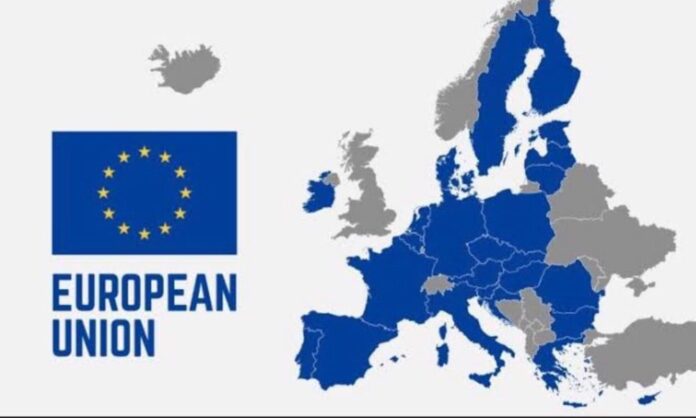No fewer than one hundred and four young Nigerians were awarded the European Union-funded postgraduate scholarships for the 2025-2026 academic session, which is under the EU’s Erasmus Mundus Joint Master’s Plus programme.
A statement by the EU on Tuesday said that the scholarship, which was awarded on Friday, will see the young Nigerians learn a targeted set of interdisciplinary skills that set them up for careers as practitioners, researchers, or decision-makers in their chosen fields.
It noted that Nigeria is the leading country in Africa for Erasmus participation and among the global top five, alongside a trio of South Asian countries and Mexico.
Speaking during this year’s Erasmus Plus Pre-Departure Orientation event in Abuja, EU Ambassador to Nigeria and ECOWAS, Gautier Mignot, congratulated the awardees, noting that they had gone through a very competitive, global application process.
“Over 15,000 applications were made, and today, you stand among the selected few. You should be proud of yourselves, and so are we. This year, so far, 104 Nigerian students are starting their Erasmus Masters in September, out of which 83 of them, almost 80 per cent have secured fully funded Erasmus scholarships,” he said.
Mignot noted that since 2014, over 800 Nigerians have been awarded Erasmus scholarships, with over 600 in just the last four years.
“This is a testament to the brilliance, determination, and potential of Nigerian youth as well as the strength of our partnership,” he said.
“Erasmus Plus is not your typical study programme. It is a unique, transformative journey. Over the next 12 to 24 months, you will live, study and grow across several countries, experiencing different cultures, educational systems, and ways of life. Most of you will be in EU Member States, but the programmes are getting more international.
“Erasmus Mundus is open to universities worldwide, and some of you will be starting in Türkiye or the UK, while others of you will spend a later part at other countries further afield. There is also a great mix of universities involved – from classic academic-focused universities to technical universities or polytechnics with a more vocational orientation.
“At the end of your studies, you will not only hold an internationally recognised Master’s degree from some of the world’s top universities, but you will also carry with you a wealth of global experiences, lifelong friendships and a broader perspective on the world,” he said while addressing the awardees on what they should expect in the next two years of the programme.

